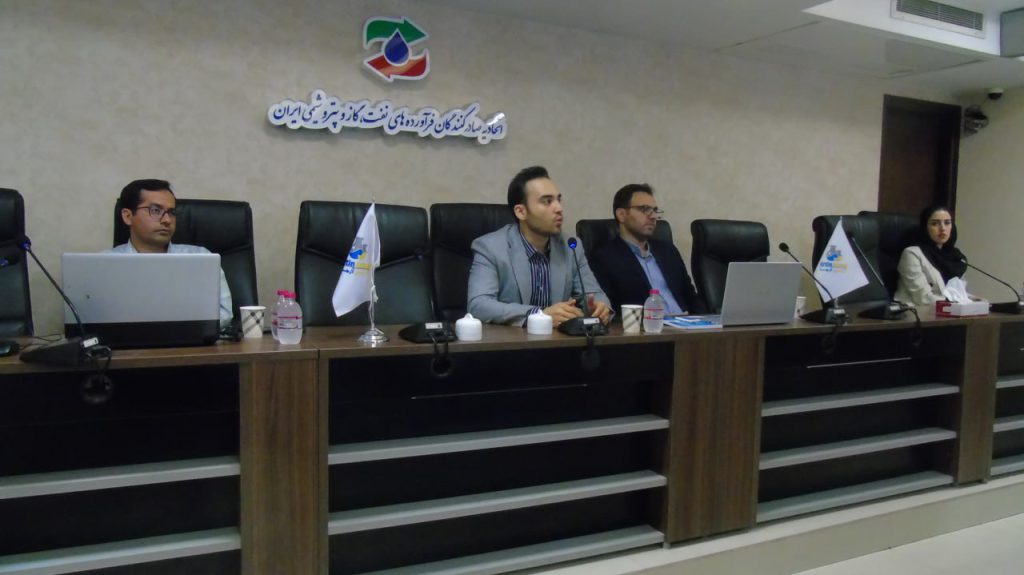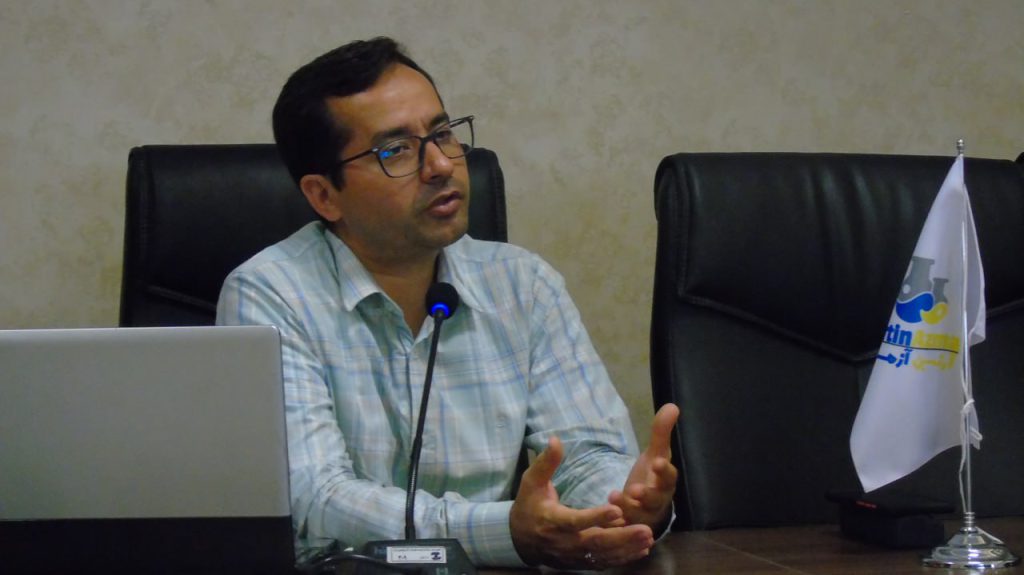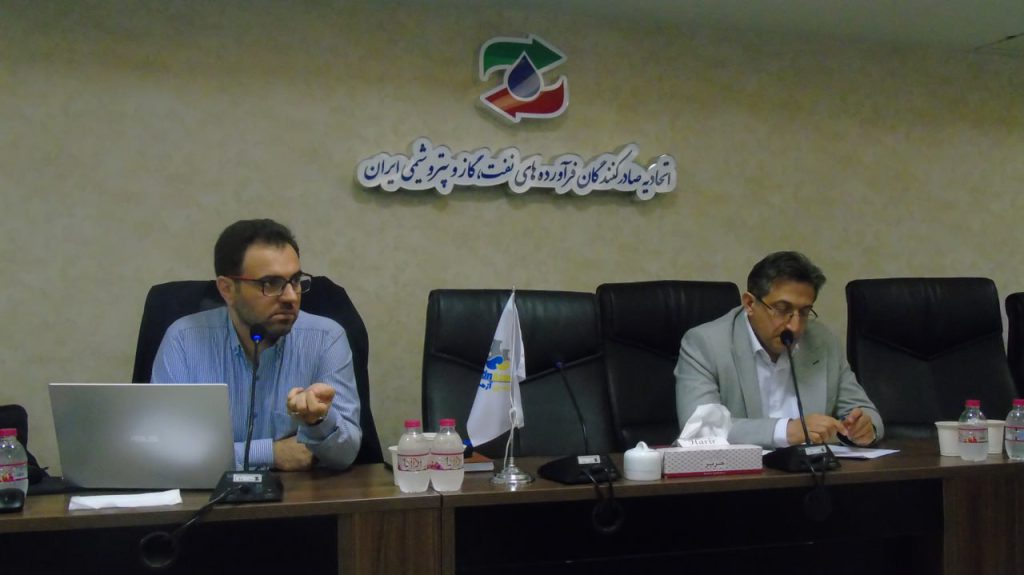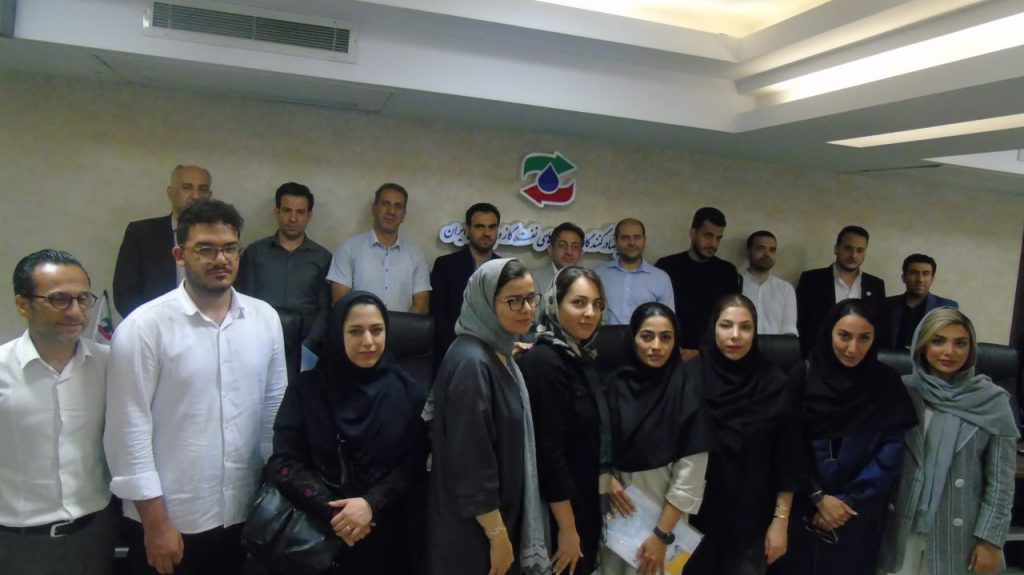The training workshop “Familiarity with the methods of laboratory testing of hydrocarbon samples” was held in collaboration with Artin Azma Mehr Company and the Union of Oil, Gas and Petrochemical Products Exporters on July 27 and 28, 1402, at the place of this union.
On the first day of this workshop, Dr. Hojatollah Kazemi, the 14th grade research professor and senior researcher of the Materials Analysis and Evaluation Center of the Oil Industry Research Institute, introduced the tests and standards of ASTM 6037 and the GC gas chromatography device and answered the questions of the workshop participants.
On the second day of this workshop, Mr. Aref Rostami, the technical manager of Artin Azma Mehr Company, who has expertise in working with elemental and molecular analysis devices, introduced hydrocarbon testing methods, including diethyl hydrocarbons (DHA) testing, total sulfur testing, and mercaptans testing. Hydrogen sulfide, test to measure the amount of water in the sample, distillation characteristics, flash point test.
The mentioned workshop was held in order to familiarize the participants with the tests that can be mentioned as both threats and opportunities for refineries. Also, increasing the capabilities of companies producing light and heavy hydrocarbons and focusing on increasing the quality of manufactured products, standardization of products and export control, and solving questions and ambiguities about these issues are among the other goals of holding this workshop.
The focus of this workshop was to teach these standards and the equipment needed to perform these analyzes and train people to use the output data of these analyzes so that the upcoming challenges can be successfully overcome. These challenges are the quality specifications or even the physical specifications of the refineries’ products, which seem necessary and necessary to prove the authenticity of claims in front of customers and resolve disputes in contracts or auditing bodies.
The participants in this workshop were from mini-refineries and the private sector and a number of people from petrochemicals and refineries. This workshop was able to answer the questions of why these tests need to be done and also provide additional information for experts.





